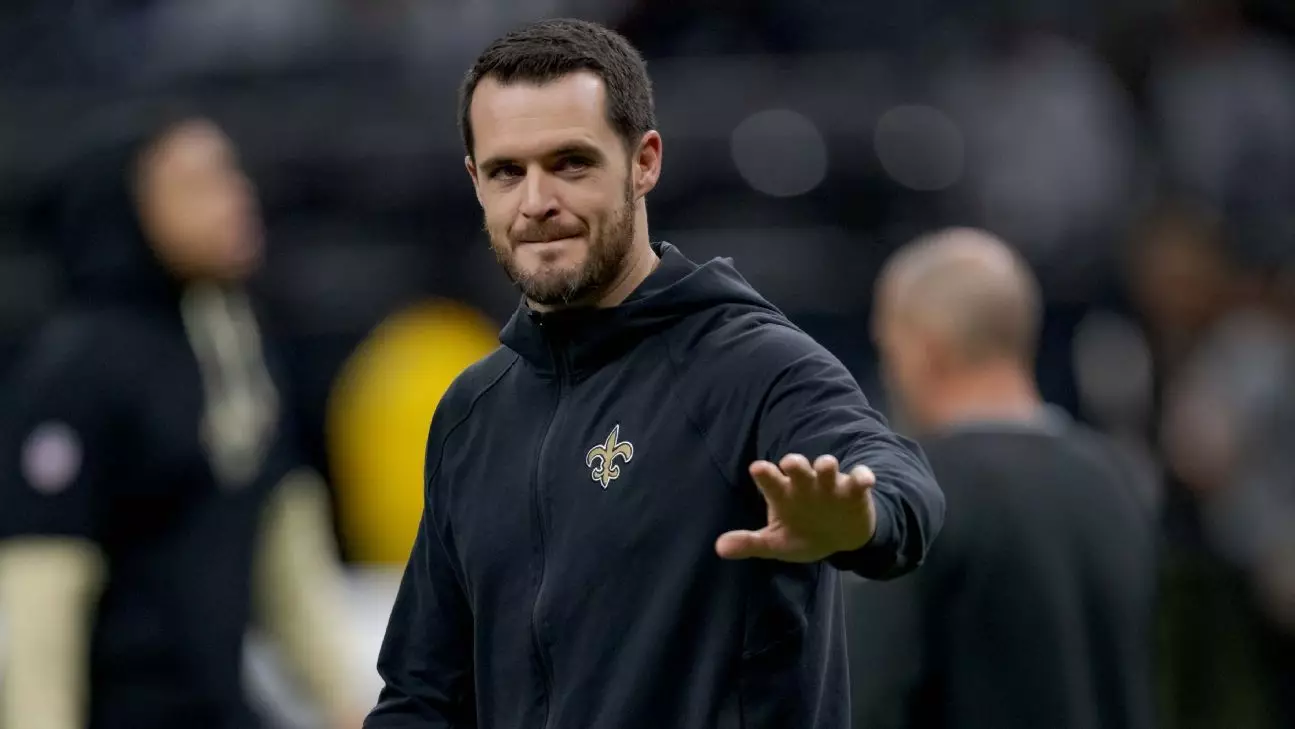In today’s sports culture, where speculation can spiral out of control, New Orleans Saints quarterback Derek Carr is taking a bold stand on transparency regarding his health. During a recent appearance at a Las Vegas church, Carr directly confronted rumors surrounding his shoulder injury—a topic that had become rife with conjecture since the speculation began on April 11. His remarks highlight not only a commitment to clarity with fans and media but also a subtle critique of how easily misinformation can spread in the age of social media. Carr’s declaration, “I have an MRI report to prove it,” clearly shows his desire to dispel lingering doubts while emphasizing the importance of fact over fiction in the sporting world.
Prioritizing Family Over Football
Carr’s absence from the Saints’ offseason programs has raised eyebrows, but he shed light on the personal challenges that led to this decision. He shared that his wife, Heather, experienced a significant health issue and suffered a miscarriage, which understandably took precedence over his football commitments. This revelation humanizes the athlete; it reminds fans and observers that elite players navigate personal hardships just like anyone else. By prioritizing his family during such a tumultuous time, Carr showcases an admirable commitment to balance in his life—a reminder that faith and family often come before professional obligations, even for a high-profile quarterback.
Facing Competition With Confidence
As Carr navigates this challenging offseason, the drafting of quarterback Tyler Shough has introduced an element of competition that could intensify scrutiny on Carr’s condition. Saints general manager Mickey Loomis has affirmed that Carr is still the starting quarterback, yet the organization is clearly fostering competition within its ranks. This tension between ensuring a competitive environment and supporting a veteran like Carr speaks to the complexities of managing a professional sports team. While Carr asserts, “We’re figuring it out and we’re gonna go forward with that,” he faces the dual challenges of healing and maintaining his status as a leader on the team.
A Call for Compassion
Carr’s message transcends football; he urges society to adopt a compassionate outlook towards others, stressing the need to not “judge and point out” without knowing the full story. In an era where public figures often become lightning rods for criticism, Carr’s plea strikes a poignant chord. He advocates for understanding and empathy during difficult times, which is vital not only in sports but also across all spheres of life. His poignant exhortation echoes the broader societal need to foster a more supportive and less judgmental community—one where individuals can face their personal battles without the looming threat of public scrutiny.
In navigating injuries, family challenges, and professional competition, Derek Carr emerges as more than a football player; he embodies resilience and principled conduct in the face of adversity. His story serves as a reminder of the complexities that athletes endure off the field while challenging society to embrace compassion and understanding in every situation.

